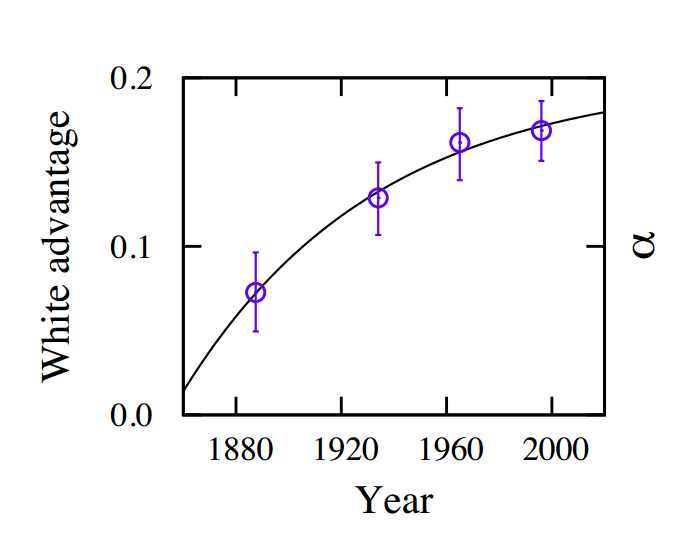| Population Learning In Chess |
| Written by Alex Armstrong | |||
| Saturday, 15 December 2012 | |||
|
Swarm intelligence is an often used idea in AI, but do human populations improve at tasks? Is there a population learning effect in, say the game of chess, or are there just brilliant individual players? Chess is a very old game and was invented in 6th century India. Have we as a society learned to play it any better over time? Over time the number of Grandmasters has increased, but it seems that the average player's "fitness" in Olympic tournaments has remained almost constant while the standard deviation has increased five-fold. So have we improved or just become more diverse? Population level learning is generally difficult to study because of the vague specification of tasks and the way that tasks change over time. Chess, on the other hand, has been a fixed problem for many years and there is lots of data. Now a team of researchers, H. V. Ribeiro, R. S. Mendes, E. K. Lenzi, M. del Castillo-Mussot, and L. A. N. Amaral from universities in Brazil, Mexico and the USA have put the data to the test and come up with some interesting results.
You might think that after so much time the question of whether or not White has an advantage would have been settled, but no. Some players argue that White has an advantage by being one move ahead, others argue that White is at a disadvantage because it has to reveal its first move. Statistically White tends to win more often, so it seems empirically that White does have an advantage. The first result of the analysis is that white has an advantage of 0.14 pawns and this is increasing over time.
Another interesting observation is that the dynamics are evolving over time but towards a steady-state. For example, White's advantage is approaching a value of 0.23 pawns with a characteristic time scale of 67 years. This seems to indicate that chess players are learning as a group to take increasing advantage of playing White, but this isn't something that can be exploited beyond a certain point. It also seems that the opening stage of a match is growing longer and approaching 15.6 moves with a characteristic time of 130 years. So it seems likely that chess playing has evolved over time but it is heading toward a steady state - as a swarm we will eventually become as good as we can get at chess. This still leaves open the possibility that some bright swarm member will see something that the other drones have missed and disturb the steady-state. This is, after all the role of mutation in the genetic algorithm.
To be informed about new articles on I Programmer, install the I Programmer Toolbar, subscribe to the RSS feed, follow us on, Twitter, Facebook, Google+ or Linkedin, or sign up for our weekly newsletter.
Comments
or email your comment to: comments@i-programmer.info
|
|||
| Last Updated ( Saturday, 15 December 2012 ) |


